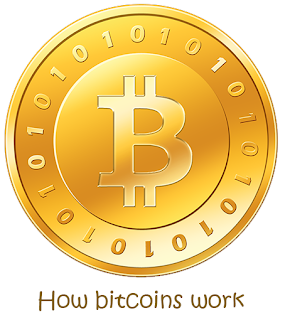Tuesday 22 October 2013
How bitcoins work
Bitcoin is often referred to as a new kind of currency.
But it may be better to think of its units as being virtual tokens that have value because enough people believe they do and there is a finite number of them.
Each of the 11 million Bitcoins currently in existence is represented by a unique online registration number.
These numbers are created through a process called "mining", which involves a computer solving a difficult mathematical problem.
Each time a problem is solved the computer's owner is rewarded with 25 Bitcoins.
To receive a Bitcoin, a user must also have a Bitcoin address - a randomly generated string of 27 to 34 letters and numbers - which acts as a kind of virtual postbox to and from which the Bitcoins are sent.
Since there is no registry of these addresses, people can use them to protect their anonymity when making a transaction.
These addresses are in turn stored in Bitcoin wallets, which are used to manage savings. They operate like privately run bank accounts - with the proviso that if the data is lost, so are the Bitcoins contained.
Subscribe to:
Posts (Atom)

